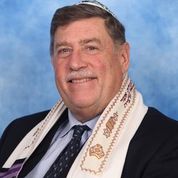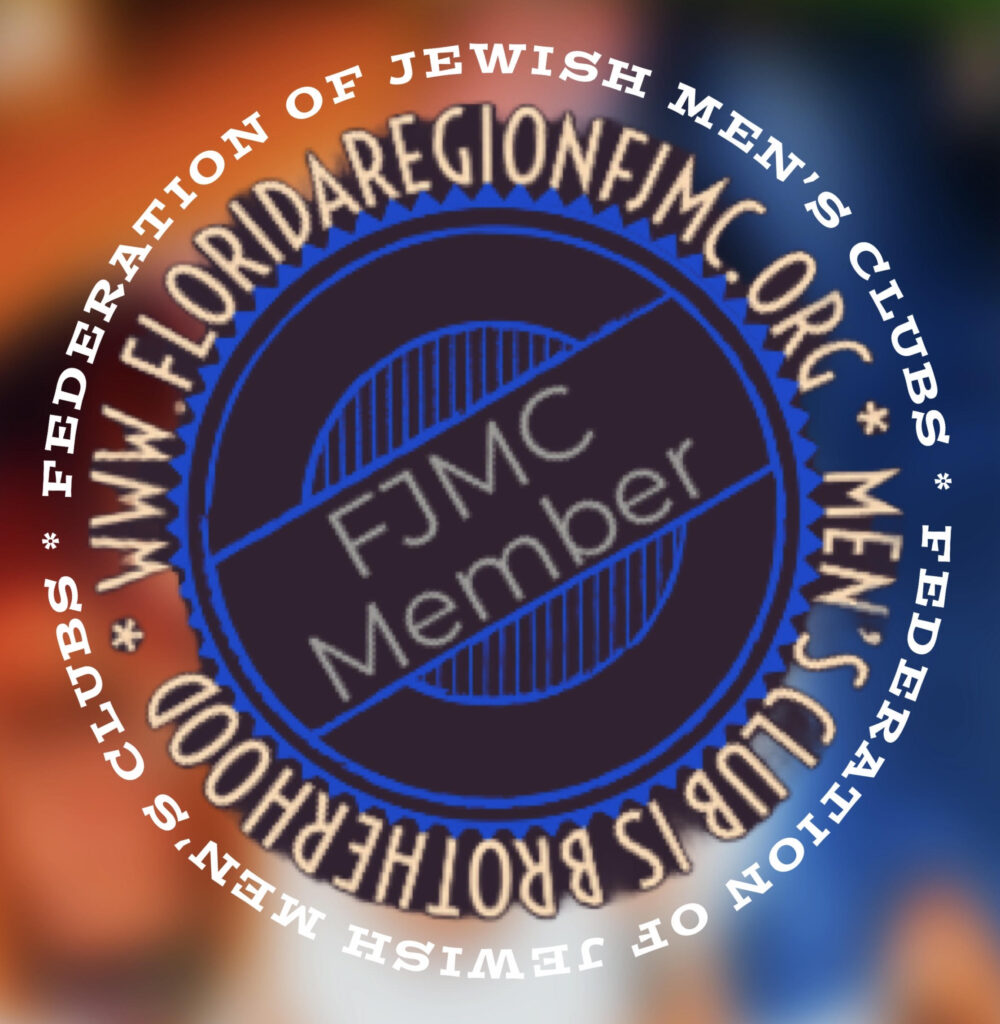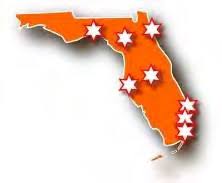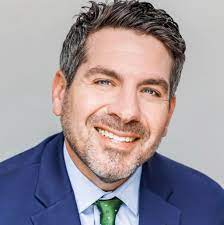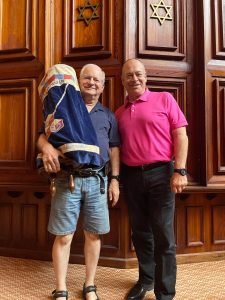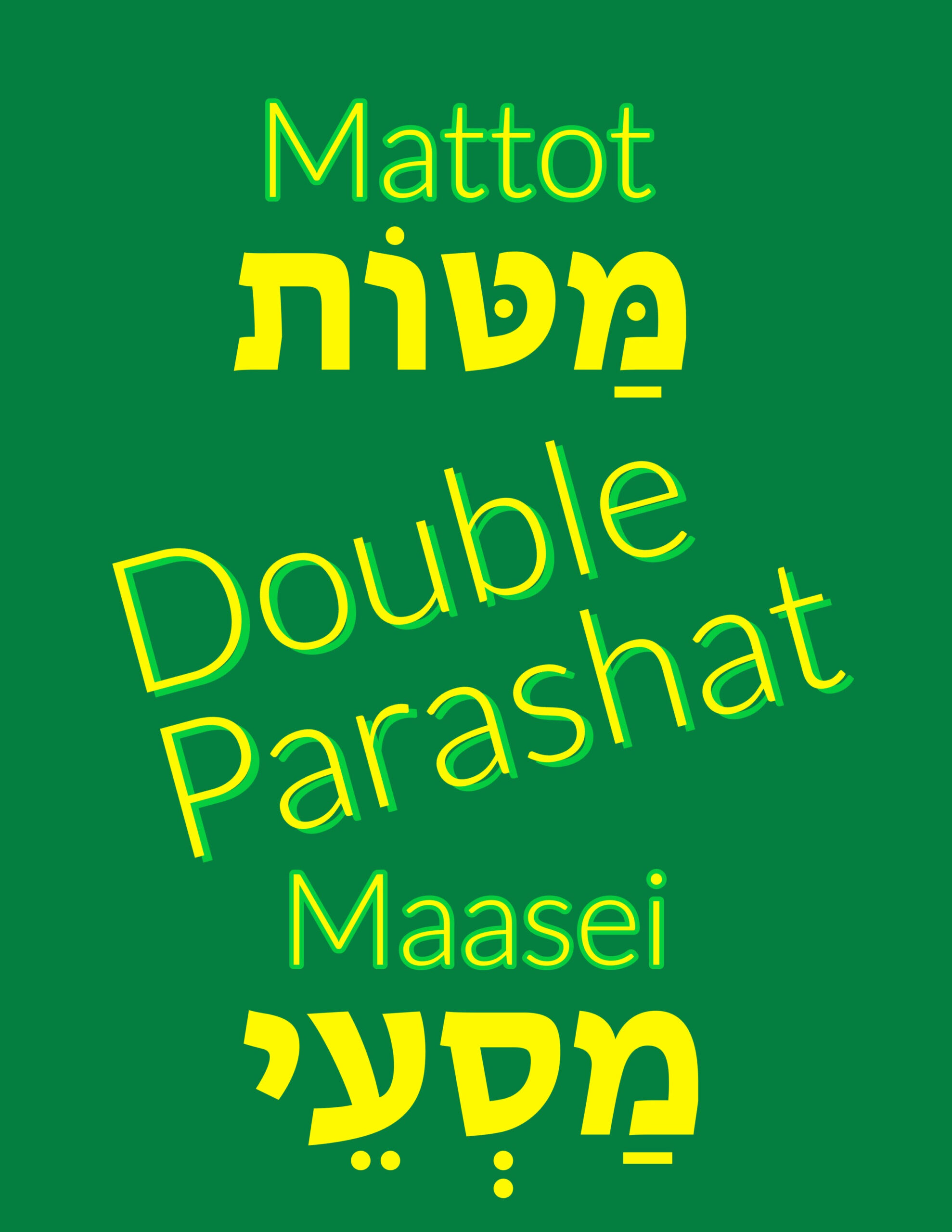
When you Choose Shabbat, you choose to learn that every Shabbat is different and special. This week I learned about Parashat Mattot (מַּטּוֹת) and Parashat Maasei (מַסְעֵי), the 42nd and 43d weekly Torah portions in the annual cycle of Torah readings, respectively.
I also learned that the lunisolar Hebrew calendar contains up to 55 weeks, the exact number varying between 50 in common years and 54 or 55 in leap years. According to Wikipedia, in some leap years (last in 2014), Parashah Mattot is read separately. In most common years (from now through 2035 in the Diaspora), Parashah Mattot is usually combined with the next parashah, Maasei, to help achieve the number of weekly readings needed.
According to Wikipedia, Mattot (מַּטּוֹת), Numbers 30:2 through 32:42, contains 5,652 Hebrew letters, 1,484 words, 112 verses and makes up 190 lines of the Torah scroll. Mattot (the Hebrew word for “tribes”) includes the laws of vows, the destruction of Midianite towns and negotiations of the Reubanites and Gadites to settle land outside of Israel.
In contrast, Maasei (מַסְעֵי), Numbers 33:1 through 36:13, contains 5,773 Hebrew letters, 1,461 words, 132 verses and 189 lines of Torah and discusses the stations of the Israelites’ journeys, instructions for taking the land of Israel, cities for the Levites, cities of refuge and the daughters of Tzelophechad.
Rabbi Michael D Klein of Temple Torat Emet offers his insights on this week’s double Torah reading, Mattot and Maasei for Shabbat, August 3, 2024 aka 28 Tammuz 5784:
“Suppose you had just completed a long journey and you were recounting the stops you completed and the experiences you encountered along the way. For most people, this would be a journey of a few weeks or even months. Imagine now, that in retelling your story, your journey was 40 years and each stop along the way had significant events which would need to be recounted-some bad, some good- all leading to an eventual goal, which, upon arrival, would be achieving your destiny promised to you by G-d. How would this change your perspective about the past?
Indeed, if we were able to recall every event in our lives retrospectively as steps toward an eventual goal, would our perspective change? We would look at every event- bad and good- as a learning experience. Would this make us more mindful of each moment? As we approach the last few months of the Jewish calendar year, would it be meaningful if we began to look back at the sad events of this past October 7th, especially since we will soon be commemorating Tisha B’Av, the major fast day commemorating the destruction of both Batei Hamikdash, and remembered how we reacted to these sad events and the resurgence of anti- Israel and anti-Semitic rhetoric and violence around the world? What have we learned from our own personal experiences and those of our people? Have they made us more mindful and appreciative of the love of our family? Our Friends? Our Community? Our Temple? Our connection to Israel?
This Shabbat, in the dual Sedrot of Mattot and Maasei, we recall the 40 year journey of our ancestors from Egypt to Israel and recall the events associated with each step. May they make us mindful of the need to elevate ourselves spiritually each day so that we become worthy of receiving and appreciating G-d’s abundant blessings in our lives. Savor the Journey!!!”
Questions to Consider:
- What are the total number of stops mentioned in the journey from Egypt to Israel? To what do they correspond?
- How many cities were designated as Cities of Refuge? Why did this number expand?
- What extra letter is added in the Torah to the mount where Moses received the Laws? Why?
- What did Moses demand of the tribes of Gad and Reuven after the war with Midian?”
Rabbi Michael D. Klein attended Yeshiva College of South Florida and served as Torah Reader, Hebrew teacher, Chazzan and spiritual leader of various synagogues throughout South Florida. In January 2015 he became Ritual Director, Bnai/Bnot Mitzvah instructor and 7th grade Hebrew instructor for Temple Torat Emet of Boynton Beach. In October 2019 he was accepted into an accelerated track and received his shicha from Yeshiva Adath Wolkowisk and has been the Rabbinic leadership of Temple Torat Emet since August 2020. In September of 2022 he was appointed Rabbinic and Spiritual Advisor of the Florida Region of FJMC.
Choose Shabbat; choose to celebrate, to light candles, sing songs and learn a little Torah.
This moment of Jewish Learning is brought to you by the Florida Region of the Federation of Jewish Men’s Clubs (FJMC). We are part of a confederation of over 200 Jewish Men’s Clubs and Brotherhoods representing over 20,000 members across the United States, Canada, Latin America, and beyond. Learn more about how your Jewish Men’s Club or Brotherhood can affiliate with the FJMC at: https://fjmc.org/for-clubs/affiliating-with-the-fjmc/.
The Florida Region of FJMC serves the needs of affiliated Men’s Clubs and Brotherhoods throughout the State of Florida. Get to know more about the FJMC Florida Region and our growing network of Jewish Men’s Clubs and Brotherhoods at www.floridaregionfjmc.org and please visit and LIKE our Florida Region FJMC Facebook Group at www.facebook.com/FloridaRegionFJMC.



